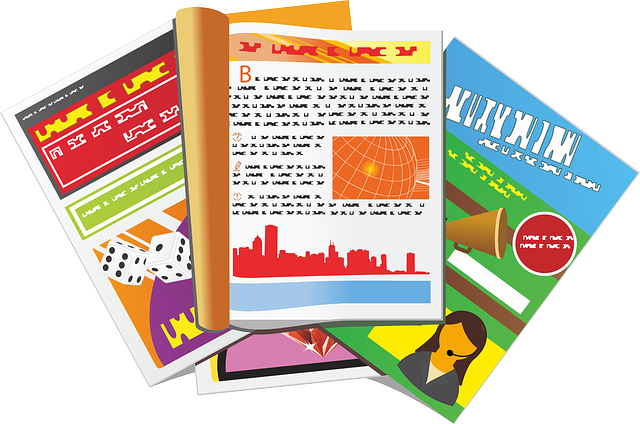Publishing a research paper is a cornerstone of academic and scientific progress.
It allows researchers to share their findings, contribute to their field, and build their academic careers.
Research papers, particularly those published in peer-reviewed journals, serve as a testament to a researcher’s research acumen potential and their ability to generate new knowledge.
Peer-reviewed publications are essential for validating the quality and credibility of research.
They play a crucial role in the dissemination of scientific information and the advancement of various fields, from STEM to the humanities.
Common Misconceptions About Needing a PhD to Publish

It’s a common misconception that you need to have a PhD to publish research. This idea is not only incorrect but also potentially discouraging to many aspiring researchers. Many PhD students and established researchers without a PhD have made significant contributions to their fields through publication. This guide aims to clarify the process and offer a clear path for anyone interested in publishing research without a PhD.
Types of Research Publications

Understanding the various types of various research articles and publications is crucial for any aspiring researcher. Each type of published work has its own set of norms, expectations, and potential audiences.
Peer-Reviewed Journals
Peer-reviewed journals are considered the gold standard in academic publishing. These journals use a rigorous peer-review journal submission process where experts in the field evaluate the quality, originality, and significance of the submitted work. Publishing in a peer-reviewed journal not only adds credibility to your research but also ensures that your work is thoroughly vetted. Peer-reviewed publications are highly valued in academia and are essential for advancing one’s academic career.
Conference Proceedings
Conference proceedings are collections of papers presented at academic conferences. These publications often provide a platform for presenting preliminary findings and receiving feedback from peers before submitting to a peer-reviewed journal. Conferences can be internal or external and can range from highly specialized meetings to large, multidisciplinary gatherings. Participating in conferences, whether internal or external conferences, also helps in networking and establishing connections with other researchers in your field.
Book Chapters
Contributing or writing a chapter to an edited volume can be a valuable way to publish research, especially if the journal or book is well-regarded in your field. Book chapters can provide more space to develop ideas and are often less constrained by strict formatting guidelines than journal articles. Writing book chapters allows researchers to explore broader themes and integrate various aspects of their research.
Preprints and Working Papers
Preprints and working papers are versions of research papers that are shared publicly before undergoing peer review. These publications allow researchers to disseminate their findings quickly and receive early feedback. Many preprint servers are discipline-specific, and some journals now accept submissions of published papers from other candidates that have been previously posted as preprints. This approach can be particularly useful for researchers looking to establish priority for their findings or seeking rapid dissemination of their work.
Steps to Publish Research Without a PhD
Publishing research or papers published without a PhD requires dedication, meticulous planning, and a clear understanding of the publication process. Here are the essential steps:
I. Conduct Original Research

1. Identify a Research Question
The foundation of any research project is a well-defined research question. This question should address a gap in the current knowledge or offer a new perspective on an existing issue. Take the time to conduct a thorough literature review to ensure that your question is novel and relevant. PhD students often spend significant time identifying a research question that will guide their dissertation. For those without a PhD, it is equally important to frame a question that can lead to a significant and original contribution to your field.
2. Design a Study
Once you have your research question, the next step is to design a study that can answer it. This involves selecting appropriate methodologies, defining your variables, and planning your data collection process. Whether you are conducting experiments, surveys, or qualitative research, a robust study design is crucial. Designing a study requires careful consideration of the methods that will best answer your research question and ensure the reliability and validity of your results.
3. Collect and Analyze Data
Data collection should be systematic and ethical. Depending on your research area, this might involve laboratory experiments, fieldwork, or archival research. Once you have collected your data, analyze it using appropriate statistical or qualitative methods. Your analysis should directly address your research question and be robust enough to withstand scrutiny. For those without access to a research lab, collaboration with institutions or leveraging open-access data can be invaluable.
II. Choose a Suitable Publication Outlet

1. Consider the Audience and Scope
Select a publication outlet that aligns with the scope and audience of your research. For example, if your research is highly specialized, look for journals relevant to that niche. If it has broader implications, a more generalist journal might be appropriate. Understanding your audience helps in tailoring your manuscript to meet the expectations and interests of the readers.
2. Check Author Guidelines and Requirements
Each publication outlet has specific author guidelines and requirements. These guidelines cover formatting, length, style, and submission procedures. Adhering to these guidelines is critical, as failure to do so can result in immediate rejection. Thoroughly reviewing the author’s guidelines before submission can save time and increase the likelihood of acceptance.
III. Prepare Your Manuscript
1. Follow the Structure and Formatting Guidelines
Your manuscript should be well-structured and formatted according to the guidelines of your chosen publication outlet. Typically, a research paper includes sections such as the abstract, introduction, methodology, results, discussion, and references. Ensure that each section is clear and concise. Proper structure and formatting enhance the readability and professionalism of your manuscript.
2. Ensure Clarity, Coherence, and Proper Citations
Clarity and coherence are essential for making your research accessible and understandable. Use clear language and logical flow to present your findings. Additionally, proper citations are crucial to acknowledge the work of others and to situate your research within the existing literature. Accurate citations and a well-organized reference list demonstrate thorough engagement with the literature and add credibility to your published work alone.
IV. Submit Your Manuscript
1. Write a Compelling Cover Letter
A cover letter accompanies your manuscript submission and provides an opportunity to highlight the significance of the paper and your research. It should succinctly summarize your study, explain its contribution to the field, and justify why it is suitable for the chosen publication outlet you submit to. A compelling cover letter can capture the editor’s interest and set the stage for a positive review process.
2. Provide Necessary Information and Disclosures
Be transparent about any potential conflicts of interest, funding sources, and ethical considerations. Full disclosure ensures the integrity of the publication process. Ethical transparency and disclosure of funding sources are critical for maintaining the trust and credibility of your research.
Respond to Reviewers’ Comments (if applicable)
1. Address Feedback Constructively
Receiving feedback from reviewers is an integral part of the peer review process. Address each comment constructively and make necessary revisions to improve your manuscript. If you disagree with a comment, provide a reasoned argument. Constructive engagement with reviewers’ feedback demonstrates your commitment to improving your work and can lead to writing a stronger final manuscript.
2. Make Required Revisions and Resubmit
After making revisions, resubmit your manuscript along with a detailed response to the reviewers’ comments. This response should outline the changes made and how they address the reviewers’ feedback. Clear communication and thorough revisions can significantly enhance the likelihood of your manuscript being accepted for publication.
Challenges and Considerations
Publishing research without a PhD can present unique challenges. Being aware of these challenges can help you navigate them effectively.
A. Lack of Institutional Affiliation
One of the biggest hurdles for independent researchers or those without a PhD is the lack of institutional affiliation. Many journals and conferences may have biases toward submissions from established institutions. However, demonstrating the quality and rigor of your research can help overcome this barrier. Joining professional organizations, attending conferences, and building a network can help mitigate the effects of not having an institutional affiliation.
B. Limited Access to Resources and Funding
Conducting research often requires access to resources such as laboratory equipment, libraries, and funding. Without institutional support, obtaining these resources can be challenging. Consider collaborating with established researchers or institutions, applying for grants, or utilizing open-access resources. Leveraging public datasets and collaborating with institutions that have the necessary infrastructure can be vital for conducting robust research.
C. Potential Biases in the Review Process
The peer review process is not immune to biases. Reviewers may have preconceived notions about the credibility of research based on the author’s affiliation or lack of a PhD. Maintaining high standards in your research and presentation can help mitigate these biases. Ensuring methodological rigor and clarity in your writing can counteract potential biases and demonstrate the quality of your work.
D. Importance of Networking and Collaboration
Networking and collaboration are vital in the research community. Building relationships with other researchers can provide opportunities for co-authorship, mentorship, and access to resources. Attend conferences, join professional organizations, and engage in academic discussions online. Networking can open doors to collaboration, provide feedback on your work, and help you stay updated on developments in your field.
E. Using Tools Like Listening.com
In today’s digital age, tools like Listening.com can significantly aid researchers by converting academic papers into audio formats. This allows researchers to listen to research articles on the go, maximizing productivity during commutes or downtime.
PhD students and independent researchers can keep up with previously published papers, gather new insights, and stay updated on developments in their research field without being tied to a desk. This flexibility can be particularly beneficial when balancing research with other commitments, enhancing the overall research and publication process.
V. Alternative Ways to Contribute to Research
If traditional publication routes are challenging, there are alternative ways to contribute new findings to the research community.
A. Participate in Citizen Science Projects
Citizen science projects involve public participation in scientific research. These projects can range from data collection and analysis to dissemination of findings. Participating in such projects allows you to contribute to science and can provide valuable research experience. Citizen science projects can also offer opportunities to work on large-scale studies that require extensive data collection efforts.
B. Collaborate with Established Researchers
Working with established researchers can open doors to publishing opportunities. Reach out to researchers in your field, express your interest in their work, and propose collaboration. Demonstrating your skills and enthusiasm can lead to fruitful partnerships. Collaboration with established researchers can also provide mentorship and guidance, enhancing your research acumen.
C. Share Findings Through Blogs, Websites, or Social Media
The digital age offers numerous platforms for sharing research findings. Blogs, personal websites, and social media channels can reach wide audiences and facilitate engagement with your work. While these platforms may not carry the same weight as peer-reviewed publications, they are valuable for dissemination and discussion. Utilizing these platforms can also help build your profile and establish you as a thought leader in your area of expertise.
VI. The Role of PhD Students and Programs in Research
A. Advantages of Being a PhD Student
PhD students have several advantages when it comes to conducting and publishing research. They have access to the resources, guidance, and support provided by their PhD program and university. This includes access to research labs, libraries, funding, and potential supervisors who can offer mentorship and collaborate on research projects.
PhD students also have the opportunity to engage in a rigorous training process that hones their research skills and prepares them for a career in academia or research.
B. Expectations for PhD Students
PhD programs at universities typically have high expectations for their students in terms of research output. Publishing papers is often a key requirement for completing a PhD and demonstrating one’s research acumen. Many PhD students are expected to publish several papers in peer-reviewed journals during their program. This pressure to publish can be intense, but it also provides motivation and opportunities for PhD students to contribute significantly to their field.
C. Collaborations and Networking
PhD programs provide a rich environment for collaboration and networking. PhD students have the opportunity to work closely with their supervisors, other faculty members, and fellow students on research projects.
These collaborations can lead to co-authored publications and help PhD students build their professional network. Attending conferences, both internal and external, is also an important part of the PhD experience. It allows students to present their work, receive feedback, and connect with researchers from other institutions.
VII. Discipline-Specific Considerations
A. STEM Fields
In STEM fields (Science, Technology, Engineering, and Mathematics), publishing in peer-reviewed journals is particularly crucial. These fields tend to have a strong emphasis on empirical research and value publications as a key measure of a researcher’s productivity and impact.
PhD students in STEM fields are often expected to publish multiple papers in high-quality journals before graduating. The competitive nature of these fields makes it important for researchers, with or without a PhD, to consistently produce high-quality, original research to establish themselves.
B. Non-STEM Areas
While publishing is also important in non-STEM areas, the expectations and norms for acquiring publications can vary considerably depending on the specific academic discipline. In some humanities and social science fields, for example, book chapters and monographs may be more valued than journal articles.
The peer review process for academic publications can also differ, with some academic fields placing more emphasis on single-blind or open review rather than the double-blind review common in STEM. Nonetheless, demonstrating research acumen through publications remains important for establishing credibility and advancing one’s career in non-STEM academic fields.
VIII. Conclusion
Publishing research without a PhD is not only possible but also increasingly common. By understanding the types of publications, following the proper steps, and navigating potential challenges, you can contribute meaningful research to your research field too.
Remember, diverse perspectives enrich the research community, and your unique insights are valuable. Whether through traditional publications, collaborations, or alternative dissemination methods, pursue your research interests with confidence and perseverance. The scientific and academic communities thrive on the contributions of dedicated researchers, regardless of their formal qualifications.
Embrace the journey of research and publication. Your work has the potential to make a significant impact, and your voice is an important addition to the ongoing scholarly conversation. Your research understanding gained through direct experience and dedication, will demonstrate real evidence of your capabilities and contribute to advancing knowledge in your field.
With determination and strategic planning, you can successfully navigate the publication process and see your research published in peer-reviewed journals, conference proceedings, book chapters, or in several other ways and venues. Each publication option offers unique opportunities to share your findings, engage with the academic community, and build your academic career.
Remember, many PhD students and researchers without a PhD have successfully published their work, and you can too. Your research project or published paper, whether part of undergraduate or master’s projects, has the potential to contribute significantly to your particular research field.
In conclusion, the journey to publishing research without a PhD may have its challenges, but it is a worthwhile endeavor. Your contributions are valuable, and your perseverance can lead to significant achievements.
Whether you have previously published papers, are a PhD student, a master’s student, or an independent researcher, the path to publication is open to you. Use this simple guide to navigate the process and take pride in the knowledge that your work can make a meaningful impact in your field and beyond.









